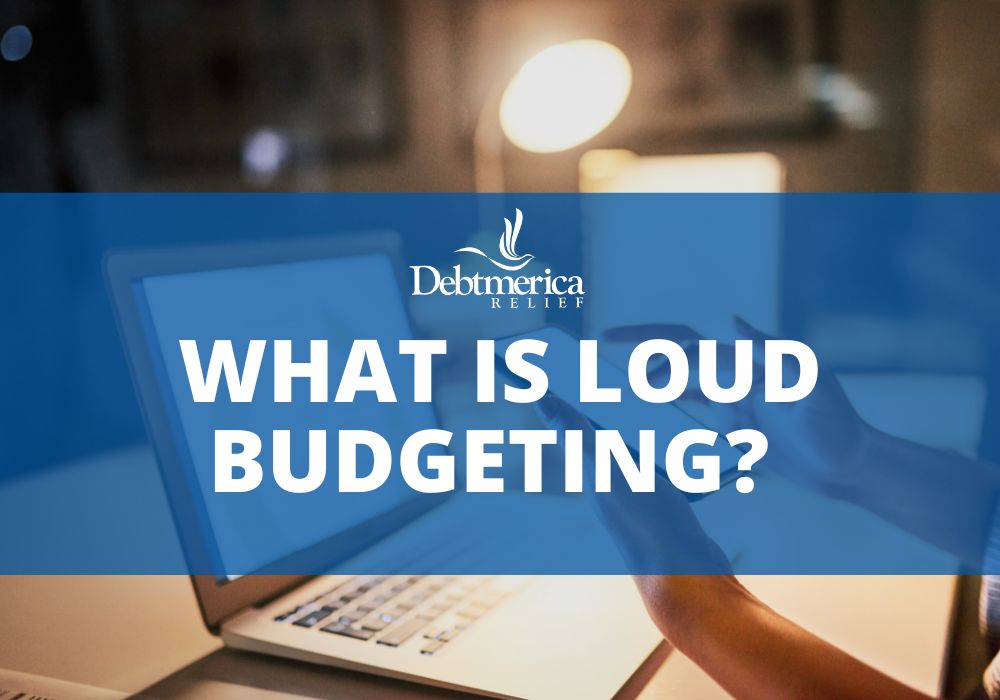What is Loud Budgeting?

Loud budgeting is a financial strategy that involves openly and transparently sharing your financial goals, achievements, and challenges. The idea behind loud budgeting is to break the silence around money conversations, normalize discussions on budgeting, and create a supportive community where people can learn from one another. This approach contrasts with traditional budgeting, which is often done privately, focusing only on personal gains or discreet financial management.
Key Principles of Loud Budgeting
- Transparency: One of the core elements of loud budgeting is being open about your income, expenses, savings goals, and financial struggles. This openness encourages accountability and creates a network of people who can provide support and advice.
- Community Accountability: Loud budgeting typically involves sharing your financial journey with others, either through social media platforms, online forums, or community groups. It’s about having a community cheer you on, hold you accountable, and offer solutions to common challenges.
- Education and Normalization: By speaking openly about finances, loud budgeting aims to normalize financial struggles and educate others on best practices, debunking myths, and eliminating the stigma around financial challenges.
- Celebrating Wins and Learning from Mistakes: Loud budgeting advocates not only celebrate financial achievements but also acknowledge and learn from setbacks. Sharing failures is seen as an opportunity to gain new perspectives and find creative solutions.
How Does Loud Budgeting Work?
Loud budgeting can take various forms, depending on the comfort level of individuals and their platform preferences. For example, some people share their budgeting updates on social media platforms, such as Instagram, Twitter, or TikTok. They might post weekly spending breakdowns, monthly savings goals, or tips for cutting costs. Some individuals take a more in-depth approach by maintaining blogs or YouTube channels where they share detailed updates, reflections, and advice on their financial journeys. Many join online communities or forums, like Reddit’s r/personalfinance or specific budgeting groups, where they discuss their budgets, seek advice, and participate in budgeting challenges. Some participants create shared Google Sheets or Notion pages, allowing others to view their financial details, track their progress, and even provide feedback.
Benefits of Loud Budgeting
Publicly sharing your financial journey can lead to increased accountability. When others know your goals, you’re more likely to stay on track and be disciplined in your budgeting. Openly discussing financial wins and challenges can inspire others to take control of their finances. Seeing someone else pay down debt or save up for a major purchase can be a powerful motivator. Loud budgeting can also foster a supportive community that shares encouragement, tips, and guidance. This social support can reduce feelings of isolation or shame around financial struggles. Many people avoid talking about money due to a lack of knowledge or perceived embarrassment. Loud budgeting makes financial literacy accessible, breaking down complex concepts through real-world examples.
Drawbacks of Loud Budgeting
Publicly sharing your financial details can raise privacy and security issues. Disclosing income or spending habits may expose you to judgment or unwanted attention. Loud budgeting can sometimes lead to unhealthy comparisons. Seeing others achieve financial goals quickly can create feelings of inadequacy or pressure to overshare. Finally, being open about financial setbacks or challenges can be emotionally taxing. Negative feedback or perceived failures might discourage some people from sticking with loud budgeting.
Who Can Benefit from Loud Budgeting?
Loud budgeting can be particularly beneficial for:
- People Seeking Accountability: If you struggle with staying disciplined, sharing your goals and progress publicly might help keep you accountable.
- Those Looking to Build Community: Loud budgeting is ideal for people who find motivation in community support, encouragement, and advice.
- Individuals Wanting to Break Money Taboos: For those who wish to normalize money conversations, loud budgeting provides a platform to be part of a larger movement.
- Financial Influencers or Educators: Those looking to educate and guide others on financial matters can use loud budgeting to showcase their real-world experiences and knowledge.
How to Get Started with Loud Budgeting
- Define Your Comfort Zone: Decide what financial details you’re comfortable sharing. You don’t have to disclose your entire income or all your expenses—start with small updates or goals.
- Find Your Platform: Choose a platform where you feel comfortable. Whether it’s social media, a personal blog, or a community forum, find a space that fits your style.
- Set Realistic Goals: Establish clear and achievable financial goals. This helps you stay focused and gives your audience a clear idea of what you’re working towards.
- Engage with Your Community: Join relevant online communities or groups. Share your experiences and be open to receiving feedback or advice.
- Be Prepared for Feedback: Loud budgeting involves opening yourself up to comments—both positive and critical. Maintain a balanced mindset and focus on your journey.
Conclusion
Loud budgeting is an evolving financial strategy that emphasizes transparency, accountability, and community support. By openly discussing finances, loud budgeters aim to demystify budgeting, inspire others, and foster a sense of community around money matters. While this approach has its benefits, it’s essential to weigh the pros and cons based on your personality, comfort, and goals.
If you need help with debt, contact us for a free consultation.



